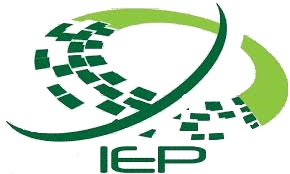Paper Title: 40-Year Bibliometric Analysis of Waqf: Its Current Status and Development, and Paths for Future Research
Author: Khaled Nour Aldeen
Publisher: Journal of Islamic Monetary Economics and Finance, 7(1), 181 – 200.
In this paper, the author had attempted to provide a systematic literature review on Waqf using two prominent research databases, i.e. Scopus and Web of Science. The author, in final analysis, analyzed 257 research documents.
It is informed by the author that most literature on Waqf has been contributed from East Asia including Malaysia and Indonesia in particular. Most activity in Waqf sector is also witnessed in these two countries. Possible reasons include favorable regulation and increased policy focus as compared to other countries.
The author highlights the main currents and subjects explored in research literature on Waqf. These include the research areas of integration of Waqf with microfinance, potential of Waqf in helping small and medium enterprises and use of Waqf in education and poverty alleviation. Literature also focuses on history of Waqf and legitimacy of Waqf, such as temporary Waqf and cash Waqf.
Finally, the literature also focuses on Waqf management, competency and accountability of Waqf management and empirical efficiency analysis of Waqf institutions. Although not mentioned in the paper, in contemporary literature, Waqf linked Sukuk are also explored after the launch of first such Sukuk in Indonesia recently.
It is a good attempt by the author to provide a succinct summary of contemporary literature on Waqf. It would have been advisable to include other databases as well, especially for this topic. There are many journals in Indonesia and Malaysia, which are not indexed in Scopus or Web of Science, yet have produced significant and quality literature on Waqf. Thus, in a literature review on Islamic economics, confining to only two major databases in which not even 20% of the journals focusing on Islamic economics are indexed, is quite limiting.
Furthermore, there had been excellent reports published by Islamic Development Bank on Islamic Social Finance on many regions of the Muslim world. These reports had extensively analyzed the regulatory framework of Waqf in different regions of the Muslim world. Thus, confining to research papers only in English language has yielded a handful of 257 papers for analysis.
If books, book chapters, reports and literature in Arabic, Turkish, Malay and Urdu language are also incorporated, then a more substantive analysis can be carried out. That is where; collaborative research could also be done involving researchers with expertise in different languages. On the history of Waqf, there would be extensive literature in Arabic and Turkish. Moreover, there are journals in East Asia which publish researches in Malay language too.
Though not highlighted in the paper, it is also pertinent to give an analysis of what are the outstanding issues in the frontier of research literature on Waqf.
Coming to the outstanding issues in Waqf, still there is need for solid comparative Fiqh studies on temporary Waqf, cash Waqf and on the exchange and substitution of Waqf. There are some studies which give perspective of individual Fiqh schools. But, extensive comparative studies are still scarce.
Secondly, on cash Waqf linked Sukuk; there is need for solid theoretical and empirical analysis of the utility of such a structure. Does it reduce transaction cost or not by increasing intermediation? What economic purpose and benefit is derived from increased intermediation? Does it result in more impactful allocation to social needs or is the dual motive including profit limits the kinds of social needs that can be funded in a commercial cum social structure? Thirdly, most empirical studies on efficiency of Waqf institutions employ Data Envelopment Analysis. In future researches, Stochastic Frontier Approach could also be used. In this context, it will be useful to do comparative studies across countries and also between Waqf and conventional trust institutions.
Categories: Research Paper in Focus


Nice Article.
LikeLiked by 1 person